How Consumers’ Economic Sentiments Are Shaping Peoples’ Financial and Emotional Well-Being (Spoiler: Not So Good): Learning from CivicScience
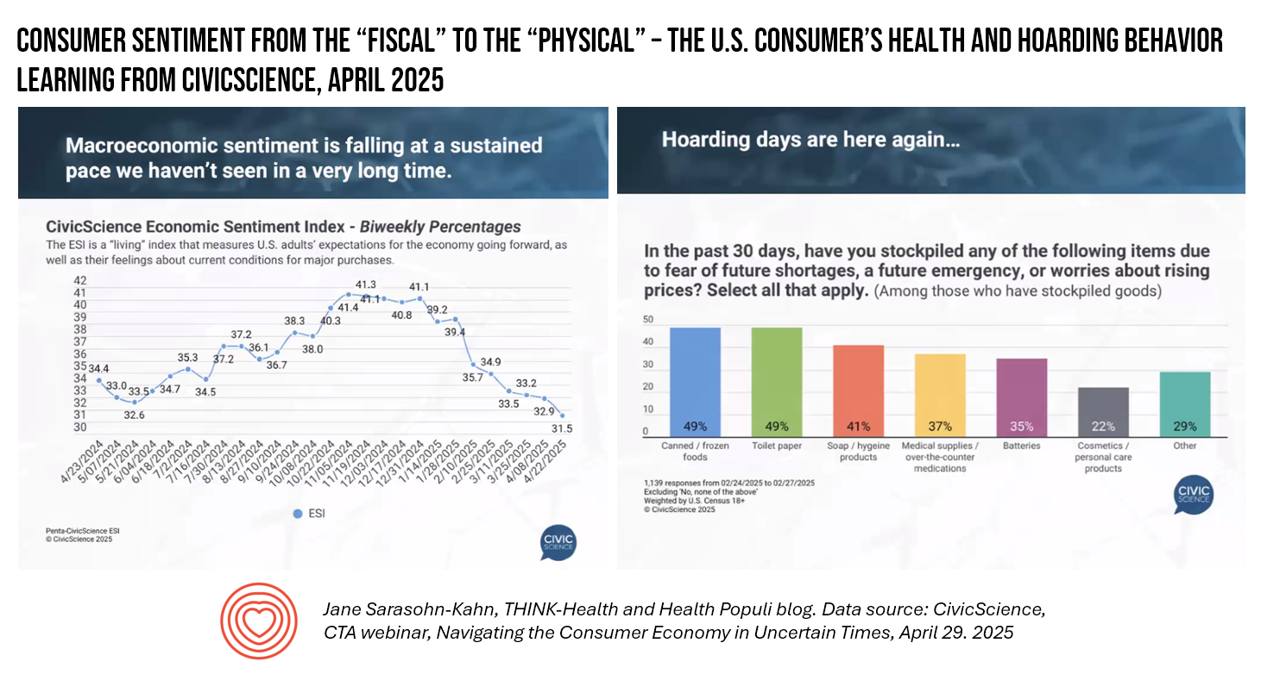
When it comes to health, the words “fiscal” and “physical” are morphing as peoples’ economic feelings (the “fiscal”) are shaping physical and emotional health, we find in U.S. consumer data presented by John Dick, Founder and CEO of CivicScience. The Consumer Technology Association convened a special session with John, who painted a portrait of the U.S. consumer at a point in time — late April 2025 — reminding us more than once during the hourlong session that, “Everything is constantly changing.” One certainty that we can be sure of, in the dismal-scientist way
There’s a Health Gap for Women Around the World – and the World Economic Forum Has a Blueprint to Fix It
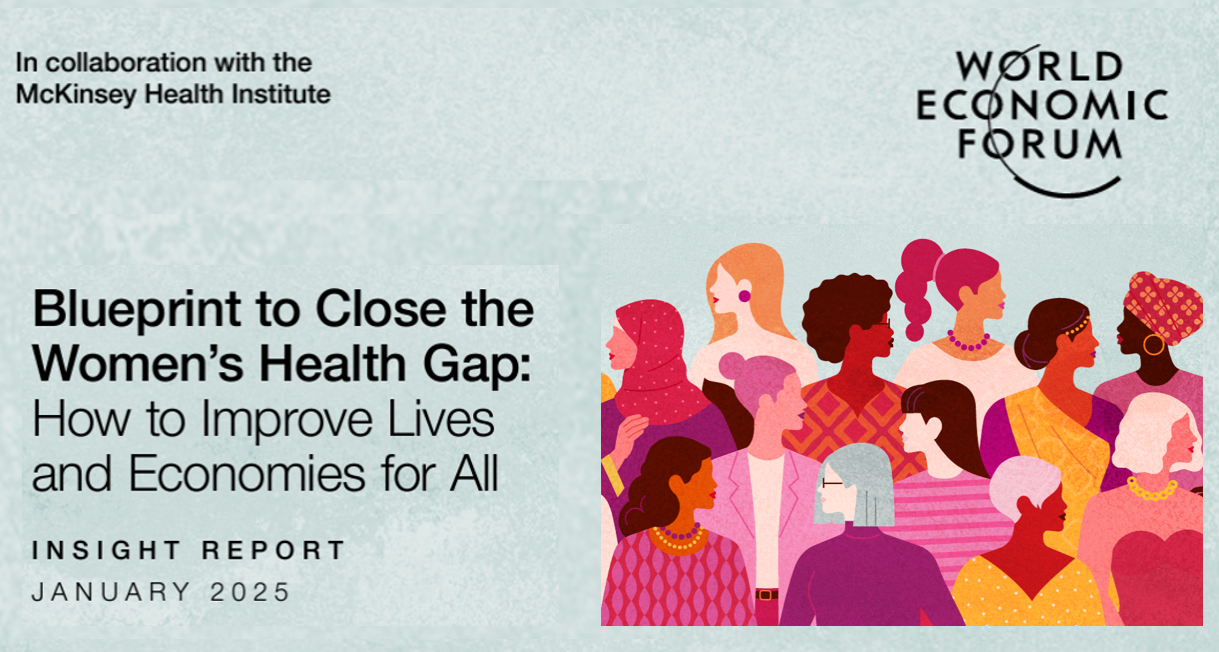
Even though women comprise one-half of the world’s population, their health outcomes and inputs do not match up to men’s: there’s a women’s health gap on Planet Earth. Meeting in Davos this week for #WEF2025, the World Economic Forum published a report on that gender-health chasm titled, Blueprint to Close the Women’s Health Gap: How to Improve Lives and Economies for All. In collaboration with the McKinsey Health Institute, the report focuses on nine key conditions that, if addressed, could reduce the global disease burden by 27 million disability adjusted life years and add
Trust and Grievance in 2025: The Edelman Trust Barometer on MLK Jr. Day Converging with the World Economic Forum Kick-Off and the Inauguration of the 47th U.S. President
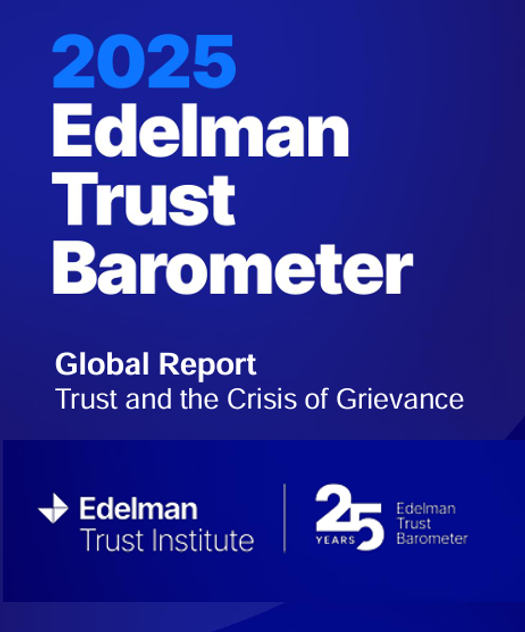
At the start of each new year comes the World Economic Forum meet-up in Davos, Switzerland and with that conference start today, 20 January 2025, the publication of the Edelman Trust Barometer. Now in the study’s 25th annual edition, the Edelman Trust Barometer this year finds us, globally, in a Crisis of Grievance which is eroding trust. Edelman surveyed 1,150 residents (plus or minus) in each of 28 countries around the world, yielding over 33,000 citizens’ voices sharing perspectives on trust and institutions. Interviews were fielded from late October to mid-November 2024.
Seeing Health/Care Everywhere at CES 2025: My Preview for #CES2025
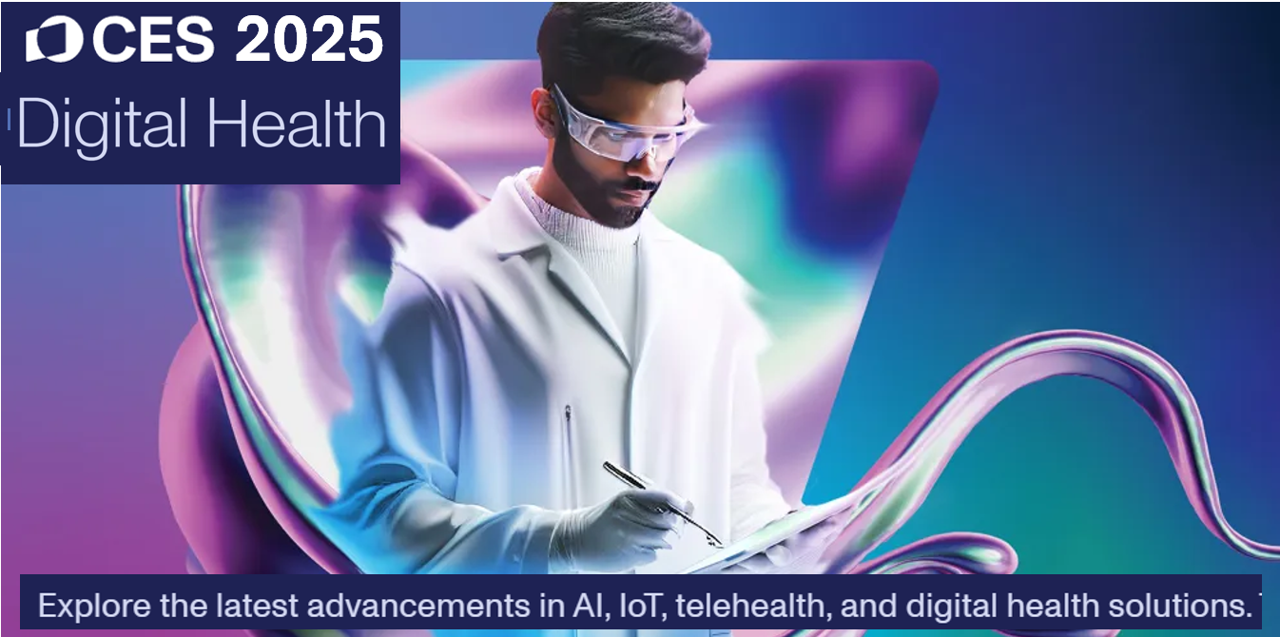
Health/care is everywhere is the mantra on the back of my business card. And at #CES2025, that will indeed be the situation. The 2025 convening of CES (once known as the Consumer Electronics Show) in Las Vegas officially kicks off on 7 January 2025. But I’ll be there beginning 3rd January, scheduling pre-show meetings with innovators, analysts, and my own clients who will be attending the meeting. This will be my 15th year participating in CES, and marking over a decade as a member of the Consumer Technology Association (CTA). As someone who has tracked
Peace and Health: A Causal Relationship Explored in the AMA Journal of Ethics

“Peace and health are inextricably connected,” the Editors of the AMA Journal of Ethics introduce an issue of the journal devoted to Peace in Health Care published November 2024. In this timely journal issue, we can explore nearly one dozen essays exploring the interrelationship between peace and health in various clinical, care, and community settings — including hospice, maternal/child care, built environments, and adjacencies looking at the use of psychedelics and music for quieting one’s inner voices. You, the reader, will find your own favorite issues to explore based on your work, values, and interests.
How’s Life? Around the World – In the U.S., It’s the Sadness That Stands Out
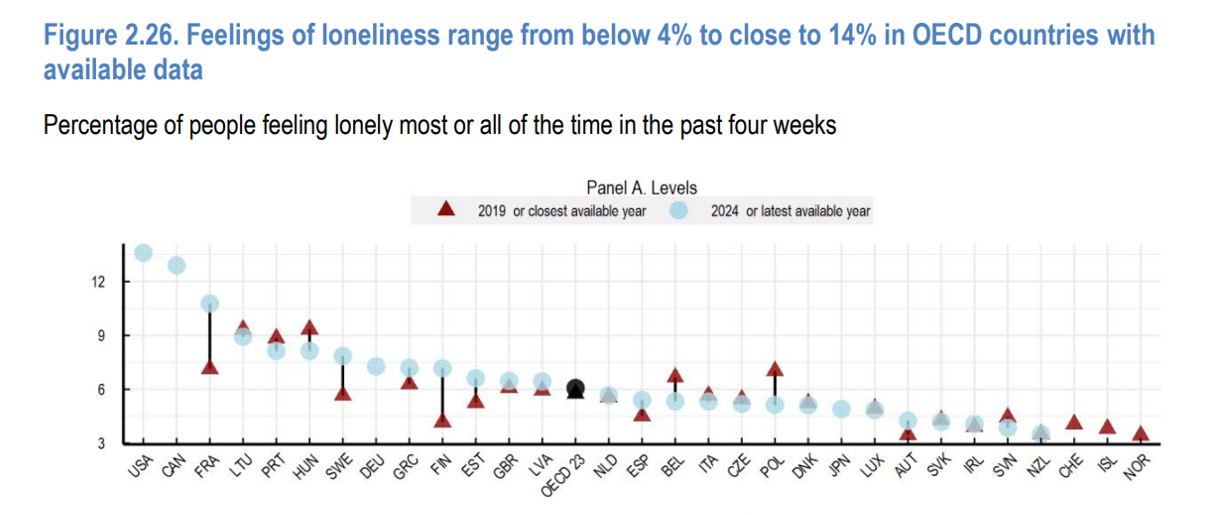
A new report from the OECD asks the question, “How’s Life?” with the tagline letting us know the plotline focuses on “well-being and resilience in times of crisis.” The Organization of Economic Cooperation and Development (OECD) has tracked the well-being of member nations for the past six years, taking a broad view on the definition of holistic health — including physical, mental, financial, and social aspects of people living in OECD countries. The first “How’s Life?” report was published at the height of the global financial crisis; the authors of this report introduce it saying that, “the
We Are Stressed in America – APA’s 2024 Stress in America Survey on “A Nation in Turmoil”
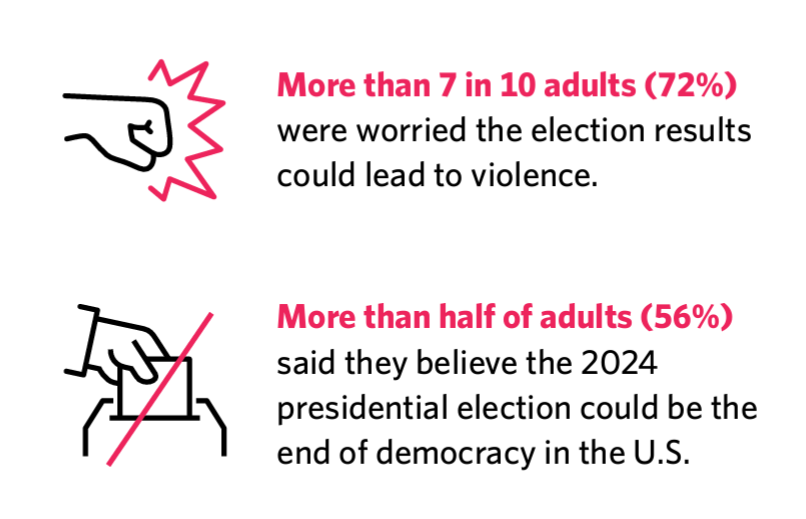
Two in three people in the U.S. are dealing with Presidential Election Stress — a significant contributor to Americans’ overall stress we learn from the American Psychological Association’s study into Stress in America 2024. I’ve covered the APA’s Stress in America studies for many years, appreciating the role that anxiety and stress play in peoples’ overall health status and well-being. In 2024, “stress” is a mainstream factor in daily life whether you identify with Main Street or Wall Street. Here was my most recent post on the APA study here in Health Populi,
Most Older People Want to Age in Place and Are Adopting Technologies At Home To Do So
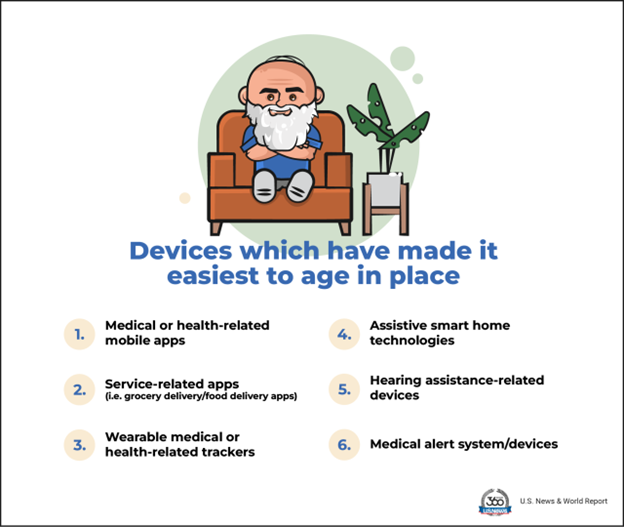
The vast majority of older people (95%) want to “age in place” — that is, stay put in their homes and avoid moving into long-term care residences or elsewhere. One approach for enabling aging-in-place is peoples’ adoption of various technologies, a topic surveyed by U.S. News & World Report. In April 2024, U.S. News interviewed 1,500 U.S. adults ages 55 and over on their views toward technology and everyday life at home. The first graphic from U.S. News’ study report, published earlier this month, shows that older people identified six categories of
Access to Technology Is the New Pillar for Well-Being: CES & the UN Partner for Human Security for All
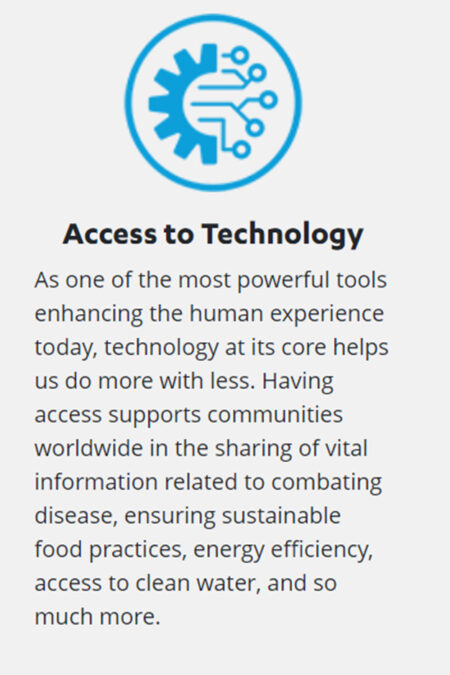
In kicking off #CES2024, CTA’s researchers noted the acceleration of global connectivity, with gaps in peoples’ ability to connect depending where they live: by region, the percent of people connected to the internet today are, according to CTA’s data, 92% in the U.S. 87% in the E.U. 76% in Latin America 73% in China 55% in Nigeria 46% in India. Such gaps in connectivity threaten peoples’ individual well-being, but also social and political stability that impacts the entire world’s security. And not to overlook, as well, the promise of AI to do good at scale at the enterprise-level, globally.
Getting Health Care at a Retail Pharmacy vs a Retail Store: Consumers May Be Favoring the Pharmacist Versus the Retailer
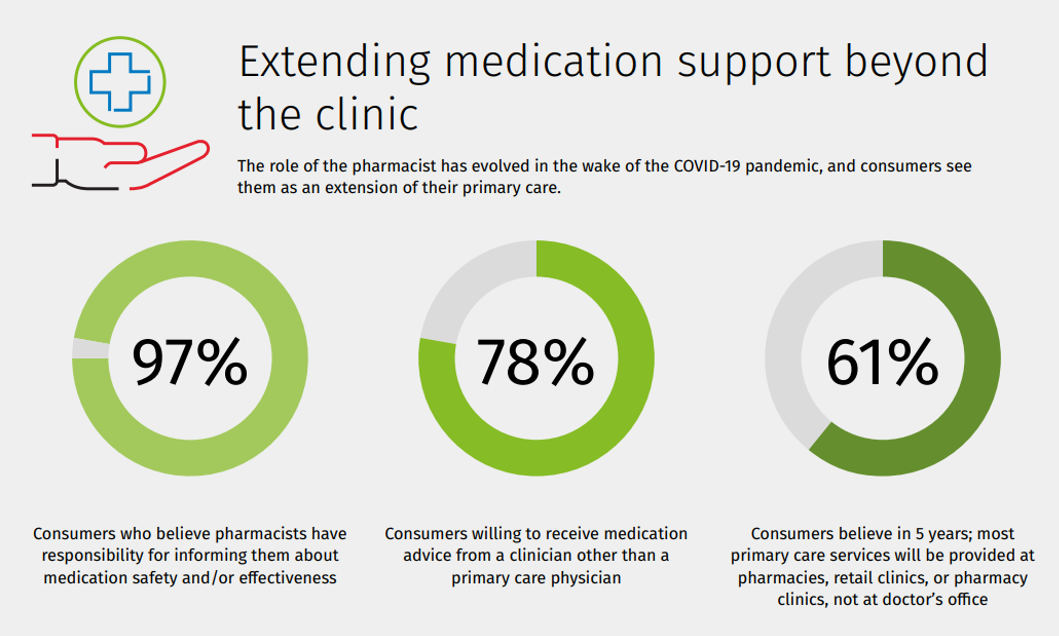
Not all “retail health” sites are created equal, U.S. consumers seem to be saying in a new study from Wolters Kluwer Health, the company’s second Pharmacy Next: Consumer Care and Cost Trends survey. Specifically, consumers have begun to differentiate between health care delivered at a retail pharmacy versus care offered at a retail store — such as Target or Walmart (both named as sites that offer “health clinics in department stores” in the study press release). While 58% of Americans were likely to visit a local pharmacy as a “first step” when faced with a non-emergency medical situation and 79%
Appreciating Water as a Driver of Health: Designing for Good, from the UN to Liberia and Flint, Michigan
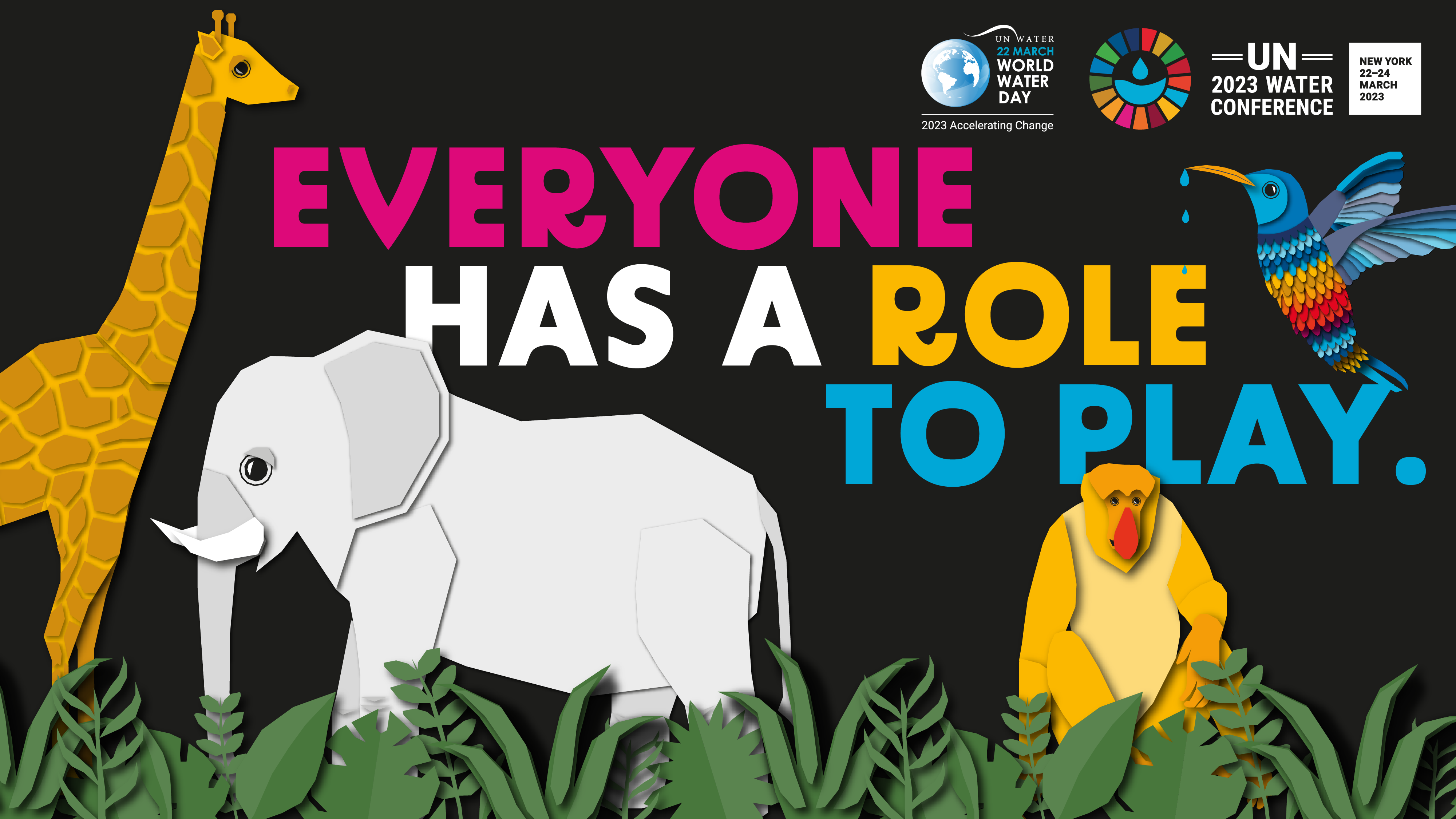
The United Nations (UN) convened the 2023 Water Conference convened March 22-24, 2023, in New York City. The meeting brought together stakeholders from all over the world to brainstorm how to meet UN sustainability development goals (SDGs) for #6 of the 17 SDGs addressing clean water and sanitation. This event was billed in the words of the conveners, a “watershed moment to tackle the global water crisis and ensure a water-secure future.” That water-secure future is a critical factor in the well-being for both people and Planet Earth, quantified in the first
Dollar General & CHPA Collaborate to Bolster Health Consumers’ Literacy and Access for OTC Pain Meds and Self-Care
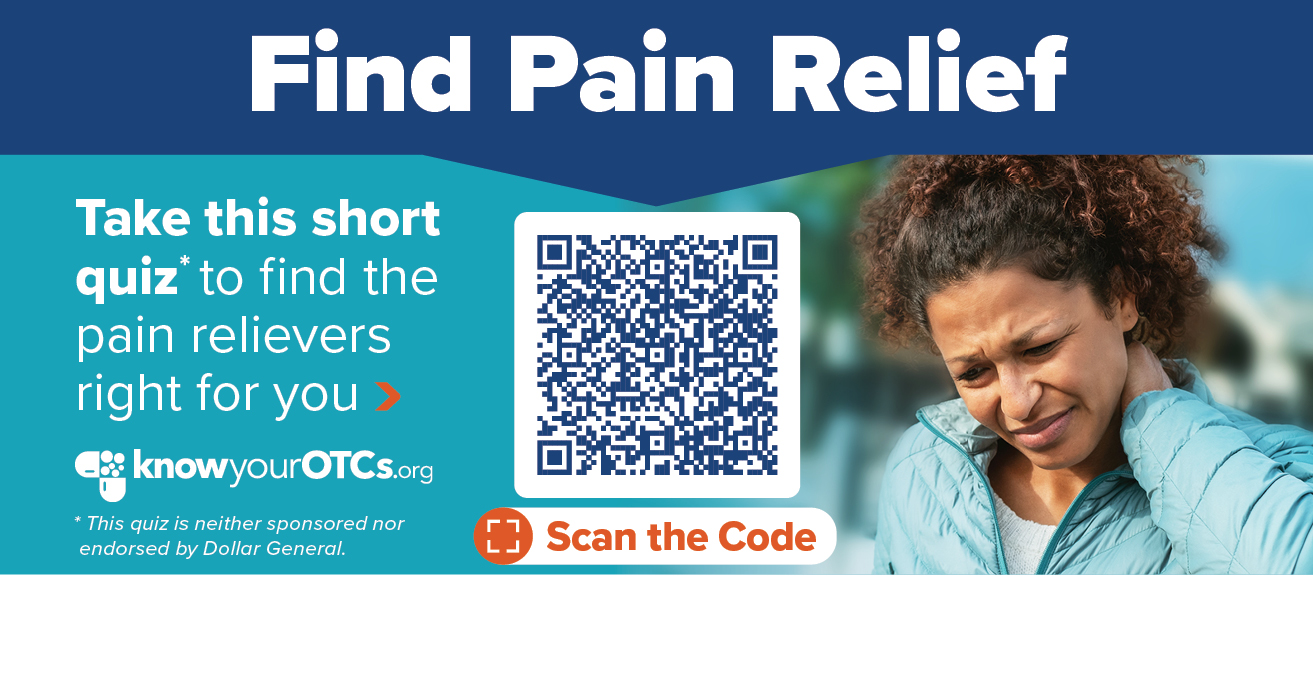
Health is “made” where we live, work, play, pray, learn….and shop. I spend a lot of time these days in the growing health/care ecosystem where retail health is broadening to address social determinants and drivers of health – namely food, transportation, broadband access, education, environment, and financial wellness – all opportunities for self-care and health engagement. For many years, I have followed the activities of CHPA, the Consumer Healthcare Products Association, and have participated in some of their conferences. Their recent announcement of a collaboration with Dollar General speaks to the growing role of self-care for all people.
Health, Politics, Inflation and Women: Health Engagement at the Voting Booth
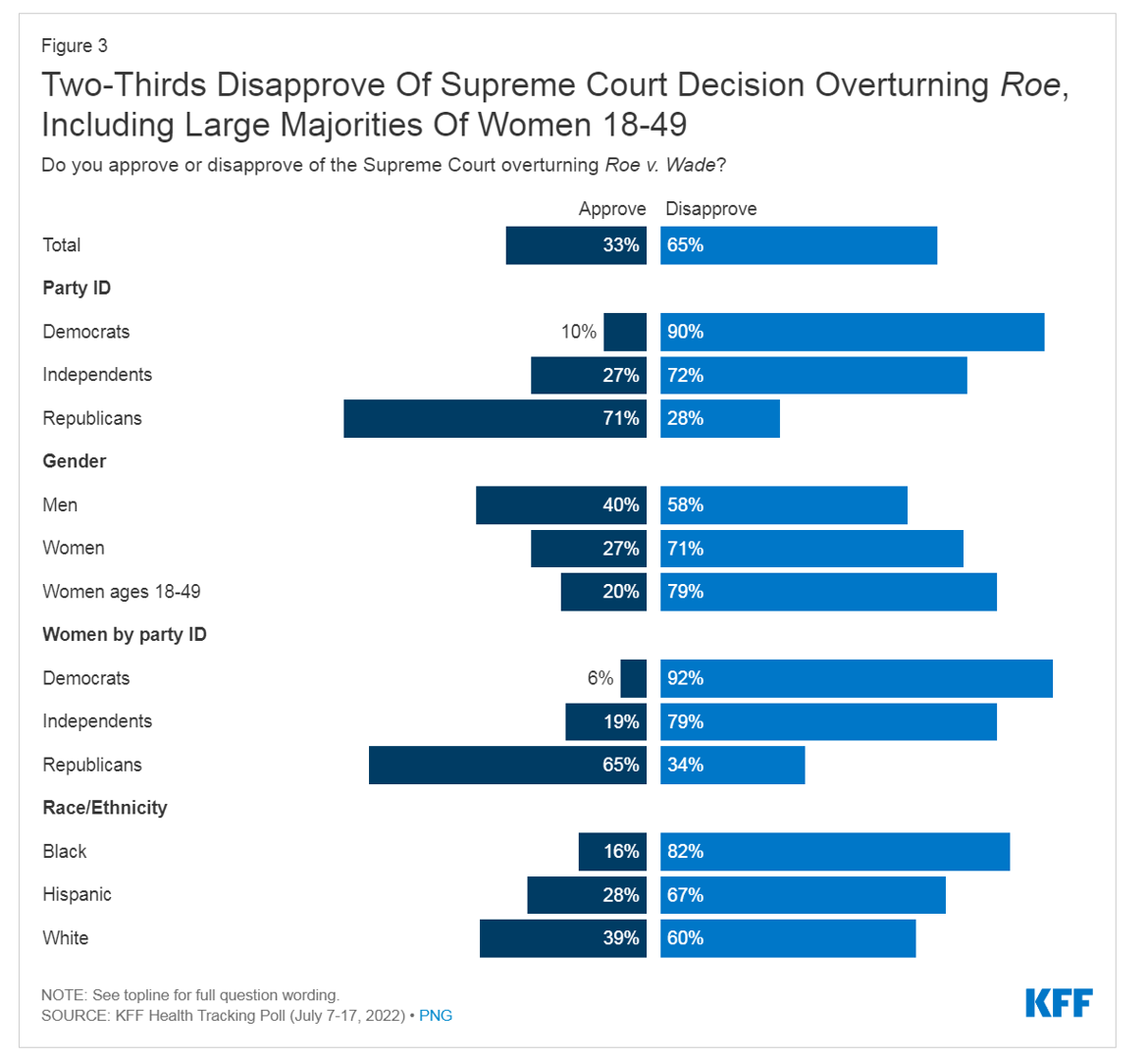
Two in three Americans disapproved of the Supreme Court’s decision to overturn the Roe v. Wade decision (aka the Dobbs case), the latest Kaiser Family Foundation Health Tracking Poll found. While inflation tops voters’ priorities, abortion access resonates for key voting blocs. KFF conducted this survey among 1,847 U.S. adults 18 and over between July 7 and 17, 2022. KFF published the study findings this week on August 2, a day of political primaries and ballot considerations in several U.S. states. Consider Kansas: a majority of Kansans voted on Tuesday to protect abortion rights
Patient Support Isn’t Just About the Price of Therapy: It’s About Safety, Really Rich Data and Trust
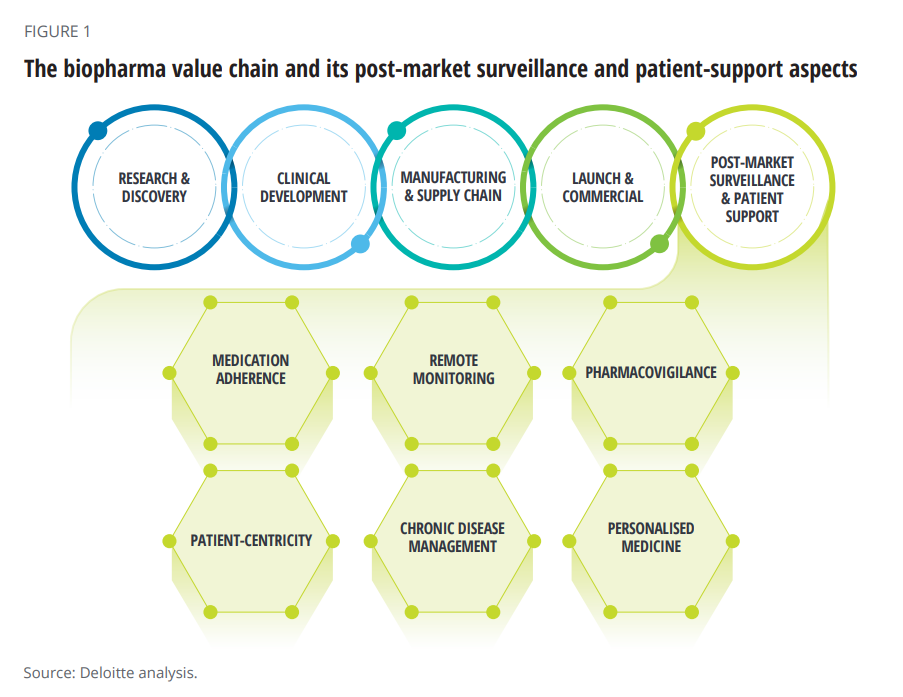
When I talk about patient support programs (PSPs), I’m most often focused on supporting peoples’ access to medicines due to costs, bolstering health literacy, and addressing health citizens’ risks of drivers of health that can be obstacles to optimal health outcomes (those challenging social determinants of health). A new report from Deloitte on Intelligent post-launch patient support speaks to another crucial definition of patient support: post-market surveillance and patient safety. The paper’s central thesis is that improving patient support is a critical step in the biopharma value chain, illustrated in the first diagram
Healthcare access, racial disparities, guns and climate – U.S. doctors are worried about some big social issues
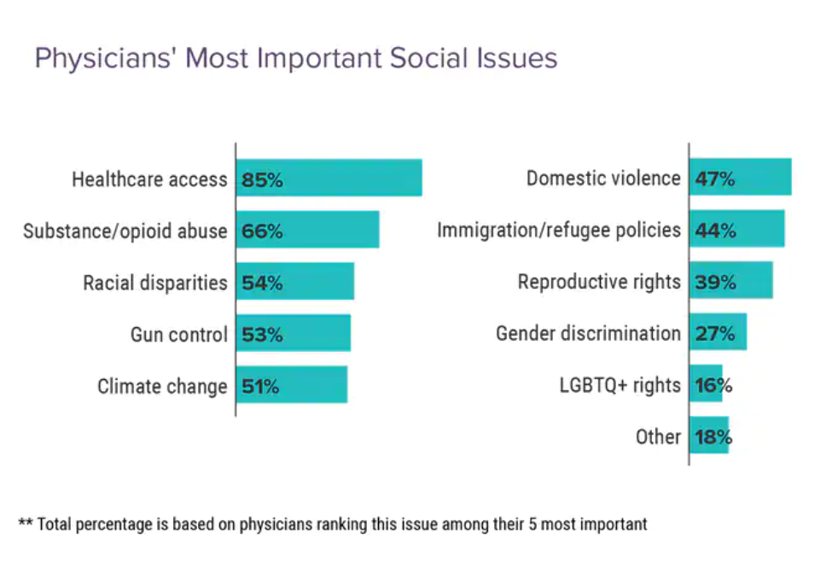
Doctors heads and hearts are jammed with concerns beyond curing patients’ medical conditions: U.S. physicians are worried about big social issues, according to a Medscape survey report, Physicians’ Views on Today’s Divisive Social Issues 2022. Topping physicians’ list of their top-five most important social issues, far above all others ranked healthcare access. Underneath that top-line statistic, it’s important to note that: 52% of doctors are “very concerned” about healthcare access, 28% are “concerned,” and 13% are “somewhat concerned.” Medscape underscores that in 2020, 31 million U.S. residents had no health insurance coverage, and
The Patient as Consumer and Payer – A Focus on Financial Stress and Wellbeing
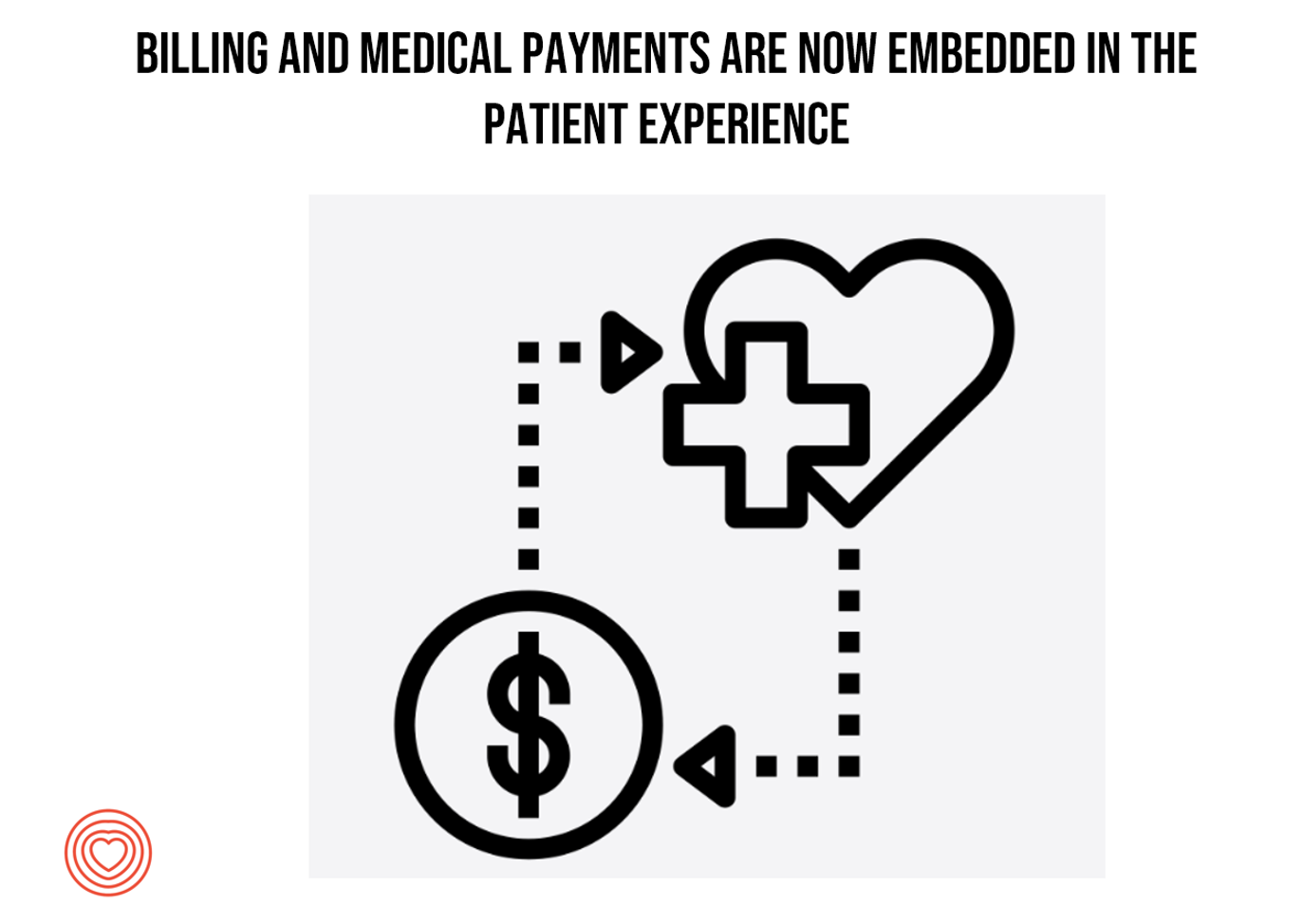
Year 3 into the COVID-19 pandemic, health citizens are dealing with coronavirus variants in convergence with other challenges in daily life: price inflation, civil and social stress, anxiety and depression, global security concerns, and the safety of their families. Add on top of these significant stressors the need to deal with medical bills, which is another source of stress for millions of patients in America. I appreciated the opportunity to share my perspectives on “The Patient As the Payer: How the Pandemic, Inflation, and Anxiety are Reshaping Consumers” in a webinar hosted by CarePayment on 25 May 2022. In this
Food, Cars, and Tech: Here’s How U.S. Consumers Rank Companies’ Reputations – the 2022 Axios-Harris Poll
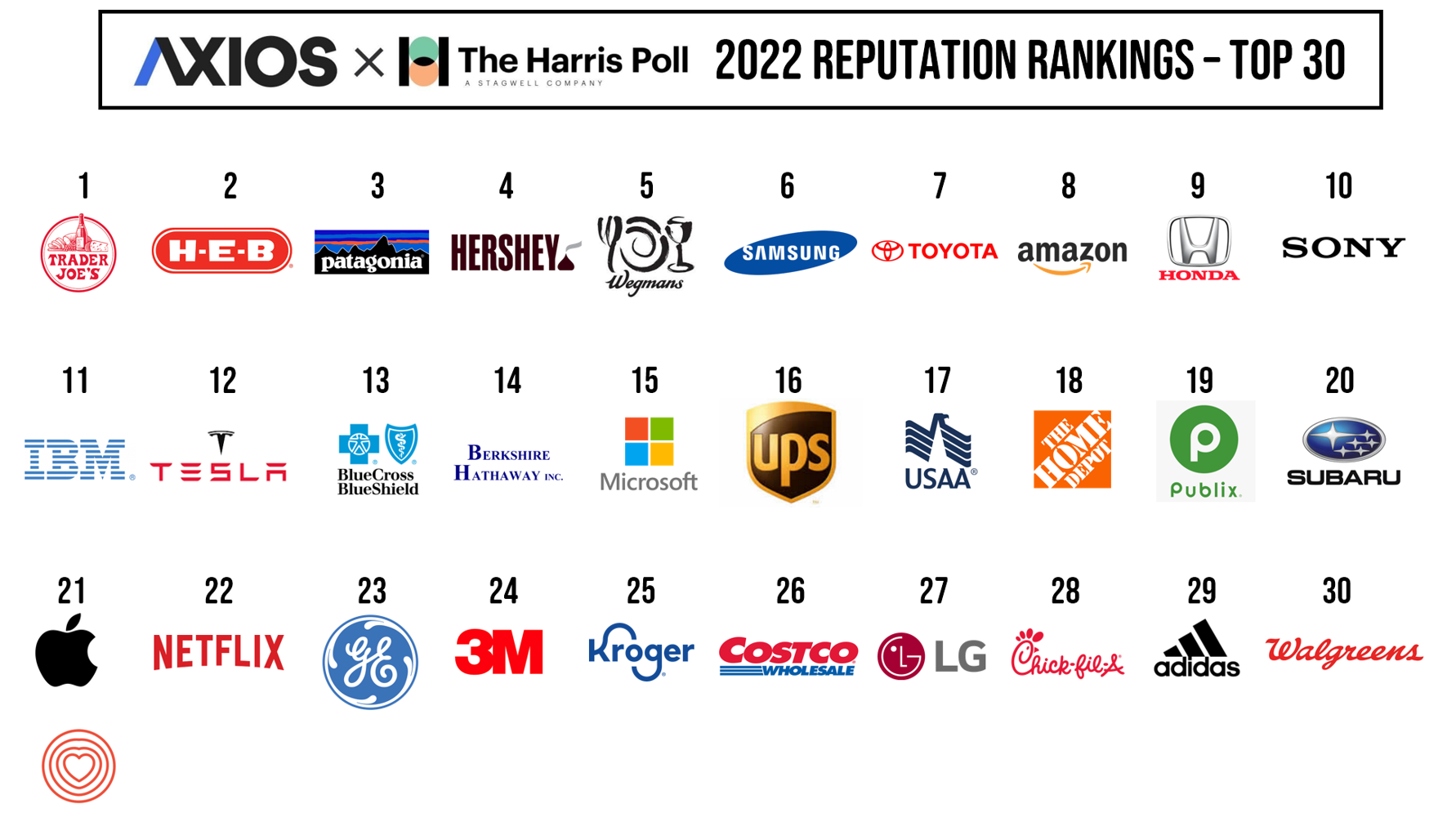
We’re all about food and cars and our technology, looking at the 2022 Axios Harris Poll 2022 Reputation Rankings published this week. I’ve curated the logos of the top 30 companies based on the Poll’s survey of 33,096 U.S. adults conducted in March and April 2022. The survey assessed peoples’ awareness of companies that either “excel or falter in society,” according to the study methodology. Here you see the top 30. The COVID-19 pandemic bolstered consumers’ awareness and call-to-action for peoples’ basic needs: food, working-from-home (thus, tech as a determinant of health and wellbeing),
Medical Distancing Is Bad For Your Health
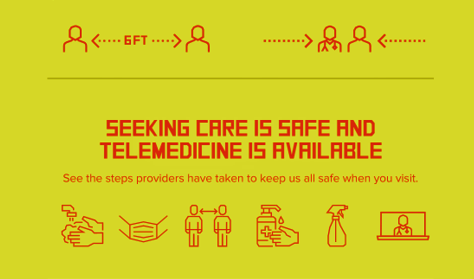
“Social distancing is great. Medical distancing? Not so much,” I observe in Medical Distancing in America: A Lingering Pandemic Side Effect., my essay published this week in Medecision’s Liberate Health blog. Since we learned to spell “coronavirus,” we also learned the meaning and risk-managing importance of physical distance early in the COVID-19 pandemic. But medical distancing became a corollary life-flow of the physical version, and for our collective health and well-being, it hasn’t been good for our health in ways beyond keeping our exposure to the virus at bay. For health care providers — physicians, hospitals, ambulatory clinics, diagnostic centers —
Crossing the Pond by Plane in the Age of Corona – My View From the Hygienic Skies and on the Ground in Belgium

Years before we knew how to spell “coronavirus,” I gained Italian citizenship while retaining my U.S. citizenship. My family’s plan was to, soon thereafter, split time for work and life between the U.S. and the E.U. Then, COVID-19 emerged as a pandemic the world over, and the move to Brussels in January 2020 was quite short-lived. Now, the plan is in play and I’m writing this post from our home in Brussels, Belgium. Why Brussels? Among many smart reasons, the city is welcoming, our farm-to-table food style is doable, the walkability is brilliant, and the transportation options are accessible to
IoT and The Rise of the Machines in Healthcare
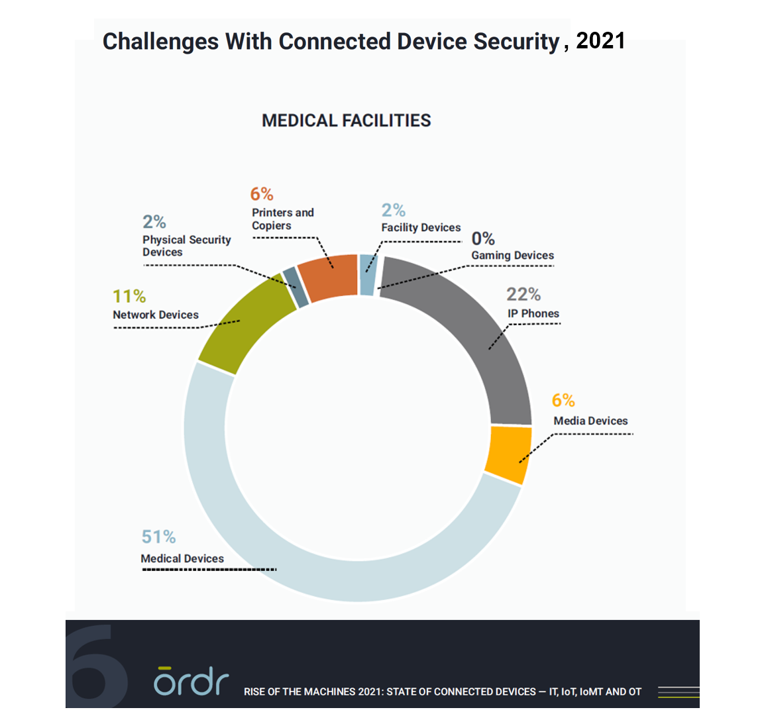
As connected devices proliferate within health care enterprises and across the health care ecosystem, cybersecurity risks abound. During the first year of the COVID-19 pandemic, the health care sector was profoundly affected by cyber-attacks on connected devices, we learn in the report, Rise of the Machines 2021: State of Connected Devices – IT, IoT, IoMT and OT from Ordr. For this annual report, Ordr analyzed security risks across over 500 deployments in healthcare, life sciences, retail, and manufacturing sectors for the 12 months June 2020 through June 2021. In health care, outdated operating systems present some of the greatest risks:
The Healthiest Communities in the U.S. After the Pandemic – U.S. News & Aetna Foundation’s Post-COVID Lists
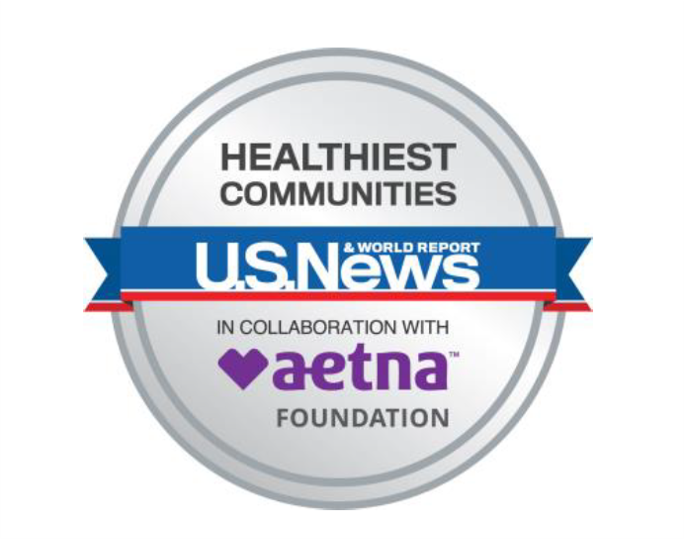
Some of America’s least-healthy communities are also those that index greater for vaccine hesitancy and other risks for well-being, found in U.S. News & World Report’s 2021 Healthiest Communities Rankings. U.S. News collaborated with the Aetna Foundation, CVS Health’s philanthropic arm, in this fourth annual list of the top geographies for well-being in the U.S. Six of the top ten healthiest towns in America are located in the state of Colorado. But #1 belongs to Los Alamos County, New Mexico, which also ranked first in ___. Beyond Colorado and New Mexico, we find that Virginia fared well for health in
Reimagining Life After the Pandemic – Seeking Health, Safety, Sustainability, and Trust
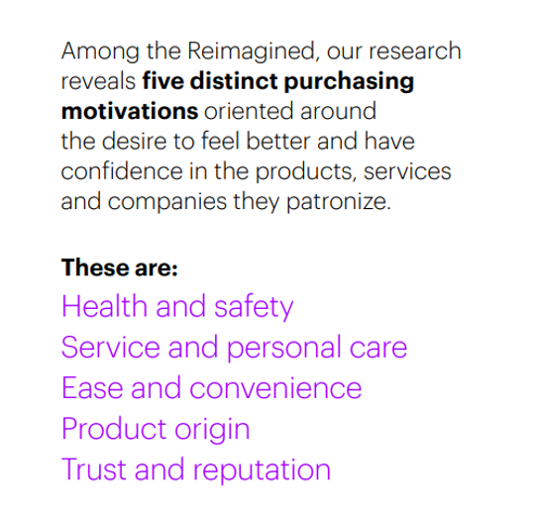
COVID-19 reshaped people around the world, one-half of whom are re-defining their personal purpose and life-goals. This sense of purpose extends to peoples’ willingness to buy or patronize companies who do not meet their needs for health, safety, sustainability and trust. For example, two in three of these people would switch travel brands if they felt health and safety weren’t up to par, discovered in Life Reimagined – Mapping the motivations that matter for today’s consumers, from Accenture’s Voices of Change series. In May 2021, Accenture polled over 25,000 consumers globally, in 22 countries, and found that one-half of people
The Digital Transformation of Home for Health – Brainstorming with Karsten Russell-Wood of Philips
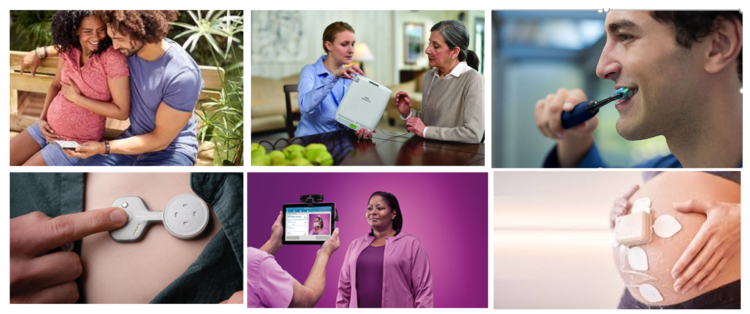
At the start of CES 2021, I had the opportunity to catch up with Karsten Russell-Wood, Portfolio Marketing Leader, Post Acute & Home, Connected Care at Philips. We brainstormed just as CES 2021 was going to “open,” virtually, for the consumer electronics conference’s first all-virtual meeting. Philips, a longtime major exhibitor at CES, created an entirely new online experience for the CES attendees – a sort of virtual gallery of different exhibits that are accessed from a single point in a “room” with various entry points. One of the company’s key messages for CES 2021 was health care delivered outside
Can Telemedicine Increase Health Equity? A Conversation with Antoinette Thomas, Dave Ryan, and Me with the ATA
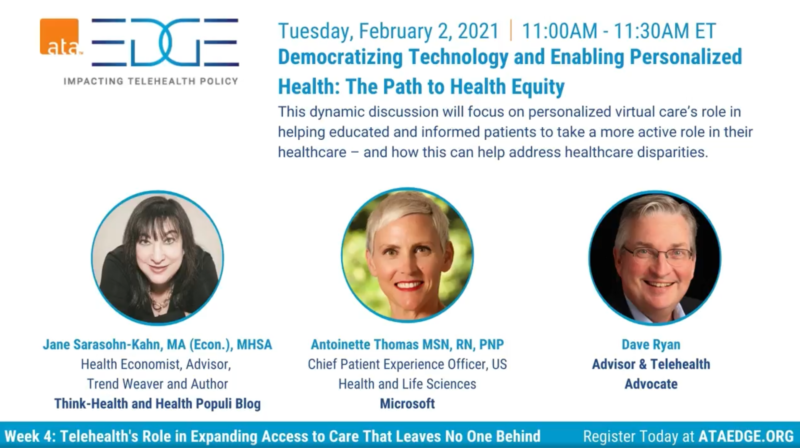
“Yes,” we concurred on our session convened by the American Telemedicine Association (ATA) EDGE session today. “We” was a trio including Antoinette Thomas (@NurseTechExec1), Chief Patient Experience Officer with Microsoft, David Ryan (@DavidPRyan), former long-time Global Head of Intel’s Health/Life Science business; and, me. Antoinette posed three questions for all of us to brainstorm, addressing various aspects of health equity. We covered, The theory that telemedicine should increase health equity — where are we and what are the barriers to getting there? The role of social determinants of health in creating equitable opportunities for health citizens; and, Entering a post-pandemic world,
Trust Plummets Around the World: The 2021 Edelman Trust Barometer in #CES2021 and Microsoft Context
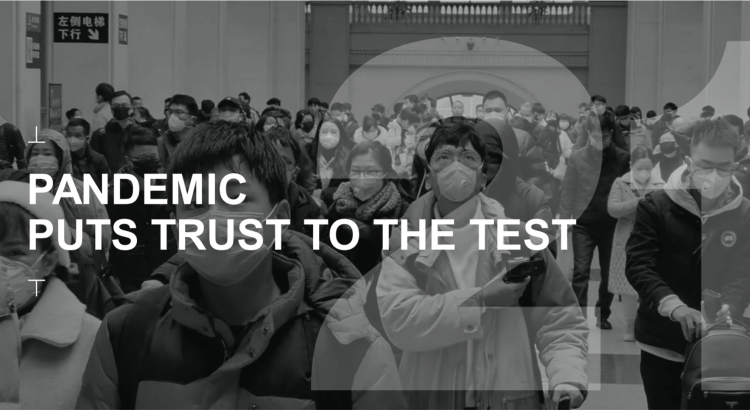
Citizens around the world unite around the concept that Trust is Dead. This is no truer than in the U.S., where trust in every type of organization and expert has plummeted in the wake of the COVID-19 pandemic, political and social strife, and an economic downturn. Welcome to the sobering 2021 Edelman Trust Barometer, released this week as the world’s technology innovators and analysts are convening at CES 2021, and the annual JP Morgan Healthcare meetup virtually convened. As the World Economic Forum succinctly put the situation, “2020 was the year of two equally destructive viruses: the pandemic and the
How COVID-19 Mobilized Participatory Health and the Importance of “Correct” Personal Health Records
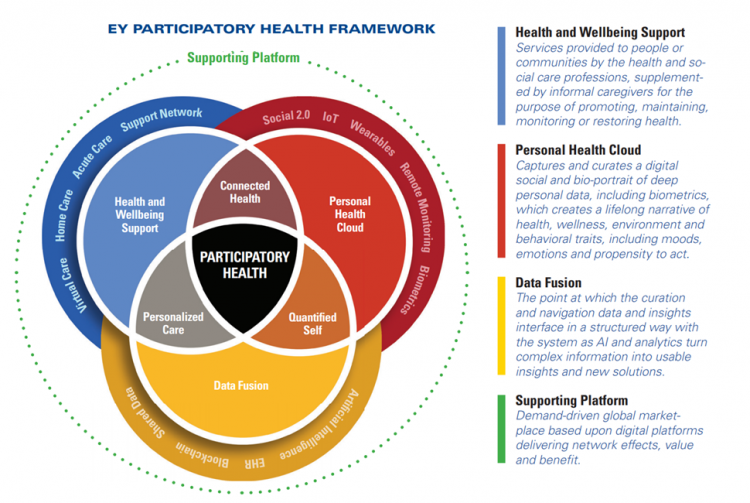
explained in a new report from EY co-sponsored by the American Hospital Association (AHA) and the AHA Center for Health Innovation. Digital Transformation – Anywhere Care envisions “health care with no address, or bringing care to the consumer or patient rather than expecting the patient to go to the hospital” as a “vital sign” of health care’s changes going into the new year of 2021. COVID-19 accelerated a movement in which I’ve been involved for over a decade, known as “participatory health.” In its early phase in the U.S., Dr. Tom Ferguson identified the emerging role of the internet in
The Coronavirus Pandemic Has Made Patients Less Patient – Insights from Accenture
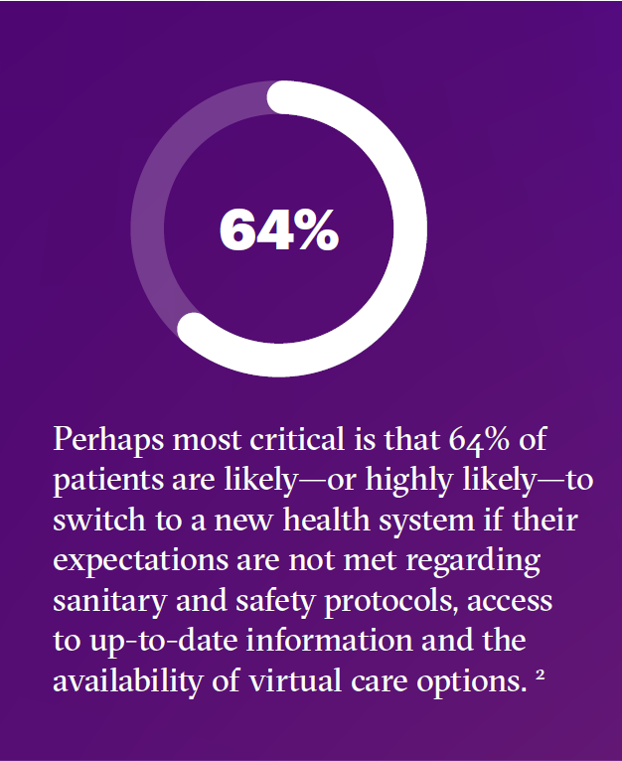
When it comes to patients, health care providers have been hit hard in two ways in the wake of the COVID-19 pandemic. Hit #1 has been the direct negative impact of the coronavirus on health care volumes and patients not utilizing hospitals and doctors’ services, avoiding physical encounters in health care sites Hit #2 has been the negative impact of patient experience for those health consumers who sought health care services during the pandemic — and had a negative response to the encounter. Accenture explored this phenomenon in their latest report, Elevating the Patient Experience to Fuel Growth. In the
Vaccine Hesitancy Is Greatest Among Those at Highest Risk of Dying from COVID-19: Black People
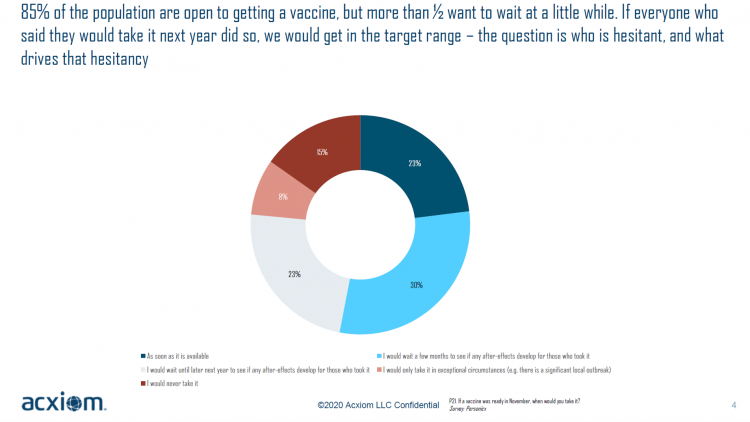
While 85% of people are open to receiving a COVID-19 vaccine, over one-half of them would want to wait some time to observe if after-effects developed in people who took the jab, according to a new study from Acxiom, the data analytics-marketing company. Not all people are as enthused about getting a coronavirus vaccine at all, Acxiom discovered: in fact, those hardest hit by the virus — Black people — would be the least-likely to want to get a COVID-19 vaccine, discussed in in Vaccine Hesitancy in the U.S., a survey the company conducted among 10,000 people in the U.S.
Rebuilding Resilience, Trust, and Health – Deloitte’s Latest on Health Care and Sustainability
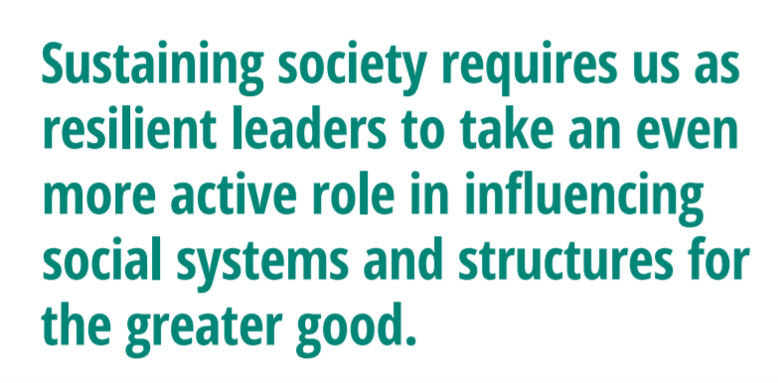
The COVID-19 pandemic has accelerated health care providers’ and plans’ investment in digital technologies while reducing capital spending on new physical assets, we learn in Building resilience during the COVID-19 pandemic and beyond from the Deloitte Center for Health Solutions. What must be built (or truly re-built), health care leaders believe, is first and foremost trust, followed by financial viability to ensure long-term resilience and sustainability — for the workforce, the organization, the community, and leaders themselves. For this report, Deloitte interviewed 60 health care chief financial officers to gauge their perspectives during the pandemic looking at the future of
Will We See A Field of Dreams for the COVID-19 Vaccine in the U.S.?
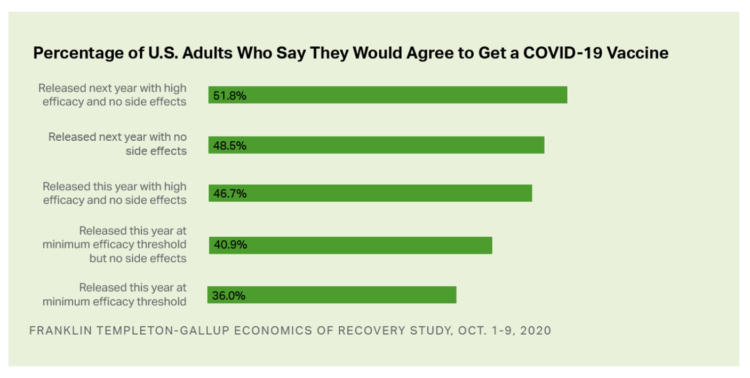
“If you build it, he will come,” the voice of James Earl Jones echoes in our minds when we recall the plotline of the film, Field of Dreams. A quick summary if you don’t know the movie: the “it” was a baseball field to be built in a rural cornfield. The “he” was a baseball player, ultimately joined by a dream-team of ball players who would convene on that dreamy field to play an amazing game. Today, the day after Pfizer announced a 90% benefit for its coronavirus vaccine, bolstering Wall Street returns on 9th November 2020, two new consumer
Masks Work. A Picture From Kansas That Tells A Story in Two Words.
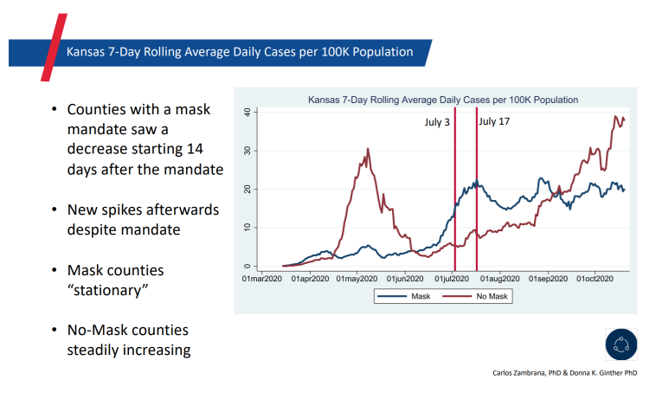
It is said that a picture tells a thousand words. This picture tells an even quicker story that can save lives: “Masks work.” The backstory: Kansas Governor Laura Kelly issued a mask mandate on July 2, 2020. The rationale: That was two days before Independence Day, the holiday weekend when she and state public health officials anticipated health citizens would abandon their personal efforts to physically distance and cover faces to avoid contracting or spreading the coronavirus. This was the message directly communicated to U.S. residents by the White House Coronavirus Task Force that week before Independence Day. The backlash:
My ABCovid-19 Journal – Day 1 of 5, “A” through “E”

My friends… It’s time in this pandemic journey that I take a full week to re-charge and bask in the midst of nature, a lake, farm-to-table food, wine-making, and the love of and therapeutic time with my wonderful husband. My gift to you all this week, 10th – 14th August, is to share with you pages from my “ABCovid-19 Journal” that I created/curated in the first weeks of the coronavirus pandemic. We all have our hacks for managing stress and discomfort, and in the first weeks of COVID-19, this was my life-saver. Journaling is one of my self-care strategies; think
We Are All About Hygiene, Groceries, and Personal Care in the Midst of the Coronavirus Pandemic
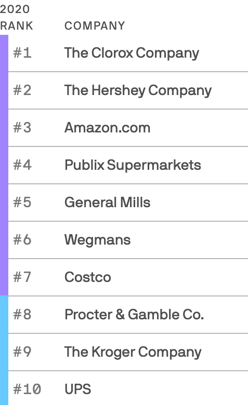
Pass me the Clorox…tip the UPS driver…love thy grocer. These are our daily life-flows in the Age of COVID-19. Our basic needs are reflected in the new 2020 Axios-Harris Poll, released today. For the past several years, I’ve covered the Harris Poll of companies’ reputation rankings here in Health Populi. Last year, Wegmans, the grocer, ranked #1; Amazon, #2. In the wake of the COVID-19 pandemic, U.S. consumers’ basic needs are emerging as health and hygiene, food, and technology, based on the new Axios-Harris Poll on the top 100 companies. This year’s study was conducted in four waves, with the
How Retailers Are the New Public Health Purveyors
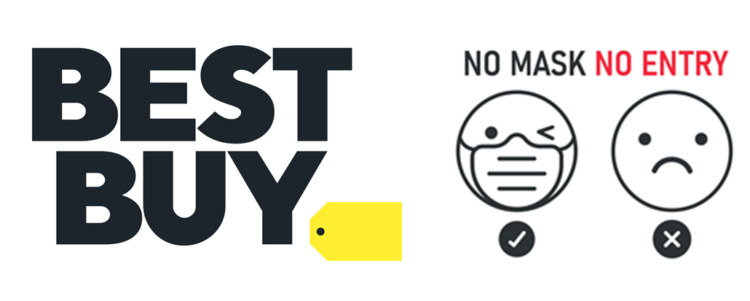
CVS stopped selling tobacco on October 1, 2014. In that moment, a Fortune 100 company stepped an entire foot, and not just a toe, into public health waters. [I covered that event with joy here in Health Populi as soon as it was announced months earlier on February 14th]. The company re-branded from CVS/pharmacy to CVS Health. That was a watershed moment in U.S. public health history, a wave that has continued to grow over the past six years to this moment, in the thick of the coronavirus pandemic. This week’s news that Best Buy will require shoppers to wear
Trust Is a Key Social Currency for COVID-Embattled Consumers
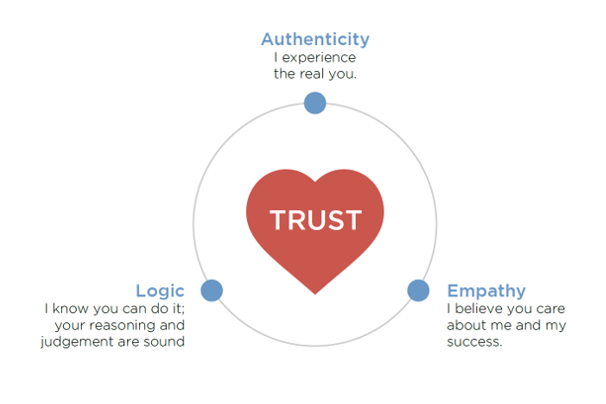
The coronavirus pandemic has re-shaped patients into consumers, concerned about managing the risk of contracting the virus, millions of people experiencing months of sheltering, working, learning, and cooking at home. Combine these new life-flows with conflicting information about the nature, severity, and life-span of COVID-19: From three levels of government leaders: The President and the Executive Branch at the Federal Level, Governors of States, and Mayors of cities; Public health agencies, especially the U.S. Centers for Disease Control and the World Health Organization; Mass media; and, Social media. Re-entering life in the “next normal” requires a large dose of trust,
How Can Healthcare Bring Patients Back? A Preview of Our ATA Session, “Onward Together” in the COVID Era
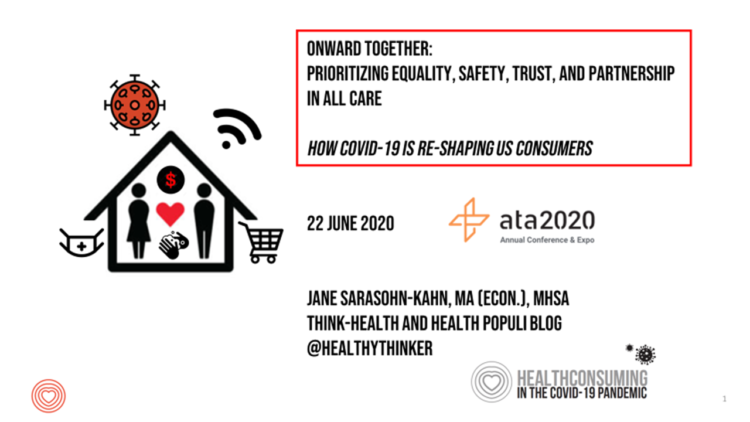
Today kicks off the first all-virtual conference of the ATA, the American Telemedicine Association. ATA’s CEO Ann Mond Johnson and team turned on a dime over the past few months, migrating the already-planned live conference scheduled in early May to this week, all online. I’ll be midwifing a panel this afternoon at 440 pm Eastern time, initially focused on how health care can garner patient loyalty. That theme was given to us in the fourth quarter of 2019, when initial planning for ATA 2020 had begun. What a difference a few months make. Not only has ATA pivoted to an
Juneteenth 2020: Inequality and Injustice in Health Care in America
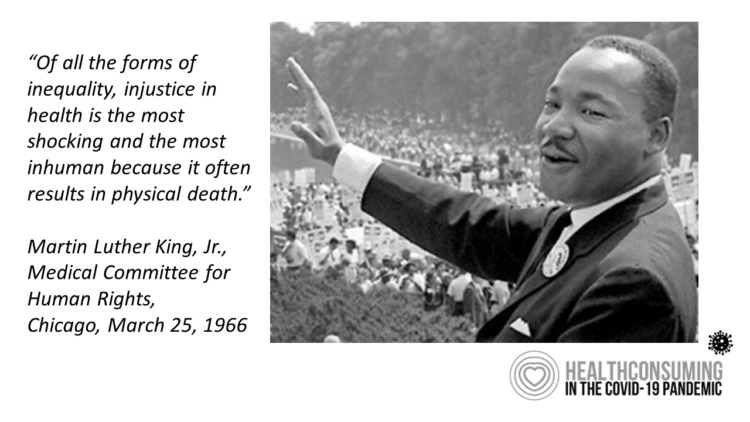
“Of all the forms of inequality, injustice in health is the most shocking and the most inhuman because it often results in physical death,” Martin Luther King, Jr., asserted at the second meeting of the Medical Committee for Human Rights in Chicago on March 25, 1966. This quote has been shortened over the five+ decades since Dr. King told this truth, to the short-hand, “Of all the forms of inequality, injustice in health care is the most shocking and inhumane.” Professor Charlene Galarneau recently enlightened me on Dr. King’s original statement in her seminal essay, “Getting King’s Words Right.” Among
An Airline, A Hospital and A Disinfectant Brand Walk Into A(n Airport) Bar–the New Health/Care Collaboration in the Age of COVID
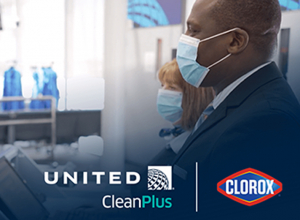
You’ve heard the one about three characters walking into a bar. A new collaboration between United Airlines, Cleveland Clinic and Clorox reminded me of that scenario, and that in the age of the coronavirus pandemic, collaboration can bolster our health. In the era of COVID-19, people — consumers. patients managing chronic conditions, and caregivers (whether for younger or older loved ones) — are concerned about contracting the virus. In U.S. states where governors mandated shelter-at-home for much of the first half of 2020, millions of people have become conditioned to physically distance, wear face coverings, and #StayHome. In particular, workers
In the Pandemic, We’re All About Food
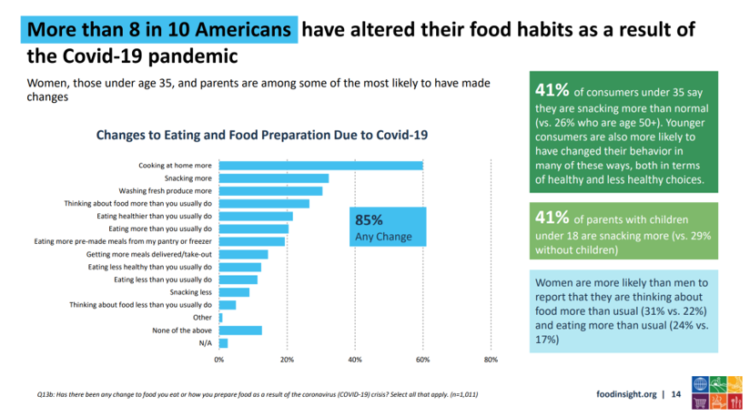
The coronavirus pandemic has pushed people down Maslow’s hierarchy of needs toward our basic hunting-and-gathering survival mode: shopping for hygiene products for home and personal care, seeking out masks (both functional and fashionable), and building out our pandemic pantries with shelf-stable foods. In addition to the pure physiological need of food for survival, “Consumers have a greater focus on health and immunity. They also have a desire to exhibit more control,” Charlie Arnot, CEO of The Center for Food Integrity, said on the Professional Dairy Producers’ Dairy Signal webinar on consumer food trends during COVID-19. We’ve become a nation of
Telehealth Is Just Healthcare Now – One Post-COVID Certainty, Three Reports
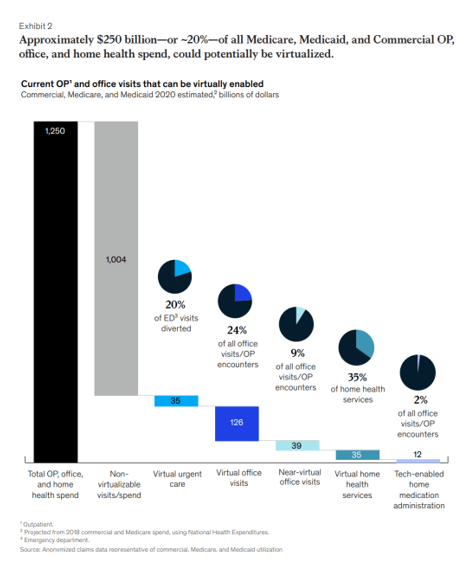
As we wrestle with just “what” health care will look like “after COVID,” there’s one certainty that we can embrace in our health planning and forecasting efforts: that’s the persistence of telehealth and virtual care into health care work- and life-flows, for clinicians and consumers alike and aligned. There’s been a flurry of research into this question since the hockey-stick growth of telemedicine visits were evident in March 2020, just days after the World Health Organization uttered the “P-word:” pandemic. Three recent reports (among many others!) bolster the business and clinical cases for telehealth in America in terms of: A
What HealthyThinker Is Thinking About Health at CES 2020

Next week, the Consumer Technology Association (CTA) will convene CES, the Consumer Electronics Show, where over 180,000 tech-minded people from around the world will convene to kick the tires on new TVs, games, smart home devices, 5G connections, 3-D printing, drones, and to be sure, digital health innovations. At #CES2020, exhibitors in the health/care ecosystem will go well beyond wearable devices for tracking steps and heart rate. I’ll be meeting with wearable tech innovators along with consumer electronics companies and retailers. I’ve also scheduled get-togethers with pharma and life science folks, health plan people, and execs from consumer health companies.
The 2020 Social Determinants of Health: Connectivity, Art, Air and Love
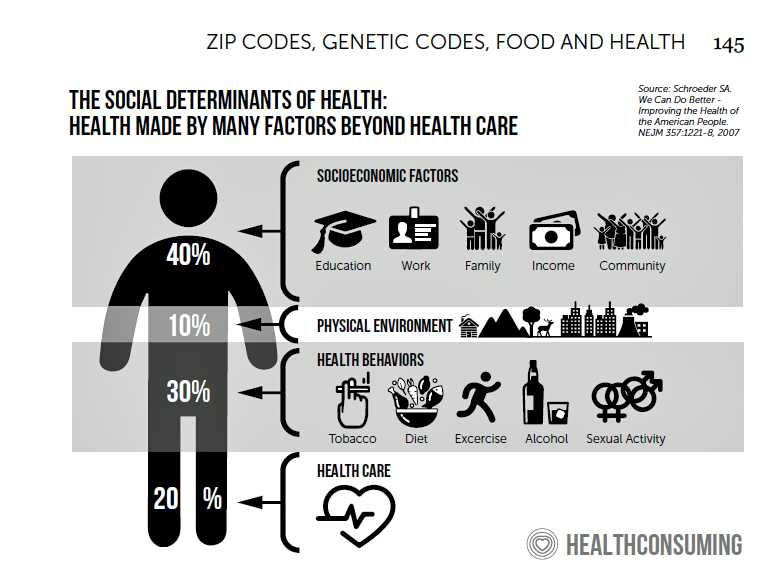
Across the U.S., the health/care ecosystem warmly embraced social determinants of health as a concept in 2019. A few of the mainstreaming-of-SDoH signposts in 2019 were: Cigna studying and focusing in on loneliness as a health and wellness risk factor Humana’s Bold Goal initiative targeting Medicare Advantage enrollees CVS building out an SDOH platform, collaborating with Unite US for the effort UPMC launching a social impact program focusing on SDoH, among other projects investing in social factors that bolster public health. As I pointed out in my 2020 Health Populi trendcast, the private sector is taking on more public health
“It’s the Deductible, Stupid” – Health Premiums Reach $20,576 in 2019 for a Family
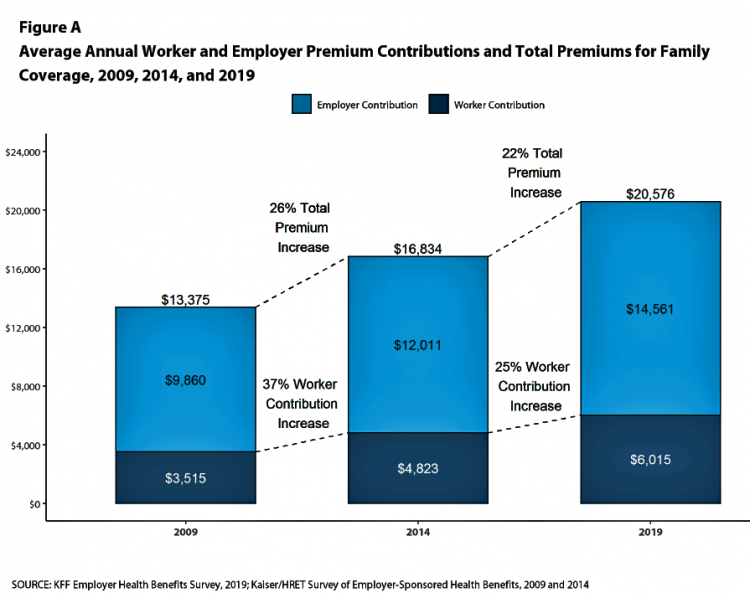
Here’s the latest arithmetic on American workers’ financial trade-off of wages for health care insurance coverage: in the ten years since 2009, family premiums have risen 54% and workers’ contribution to health care spending grew 71%. Wages? They rose 26%, and general price inflation by 20%, according to the Kaiser Family Foundation survey on employer-sponsored benefits for 2019 released yesterday. Survey details for this 21st annual encyclopedia on employer-sponsored health care are published in Health Affairs October 2019 issue in a paper titled, Health Benefits in 2019: Premiums Inch Higher, Employers Respond to Federal Policy. Because this
How Consumers Look At Social Determinants of Health for Cancer, Diabetes and Mental Health

Enlightened health/care industry and public policy stakeholders have begun to embrace and address social determinants of health. These are the inputs that bolster health beyond health care services: they include economic stability like job security and income level (and equity), education, and access to healthy food, food security, safe neighborhoods, social support, clean environments (water and air), and in my own update on SDoH factors, access to broadband connectivity. As physician leaders in the AMA, technology advocates from AMIA, and numerous health plans focus efforts on strengthening social determinants, what do people – consumers, patients, caregivers — think about these
Scaling the Social Determinants of Health – McKinsey and Kaiser’s Bold Move

People who are in poor health or use more health care services are more likely to report multiple unmet social needs, such as food insecurity, unsafe neighborhoods, lack of good housing, social isolation, and poor transportation access, found through a survey conducted by McKinsey. The results are summarized in Addressing the Social Determinants of Health. The growing recognition of the influence of social determinants reached a tipping point last week with the news that Kaiser-Permanente would work with Unite US to scale services to people who need them. The mainstreaming of SDoH speaks to the awareness that health is made
Best Buy Bets on AgingTech in the Expanding Retail Health Ecosystem
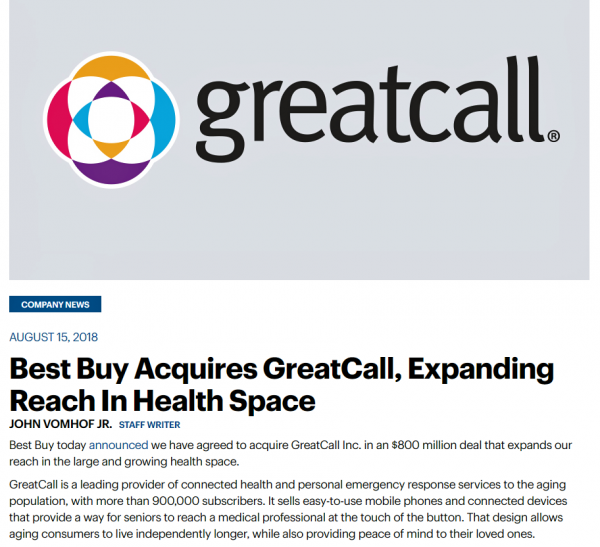
With the acquisition of GreatCall, a mature player in the aging-tech space, Best Buy is doubling down on consumer health technology@retail. This week at Best Buy. the electronics retailer, it’s out with CDs and in with technology for aging at home. The company announced that it would buy GreatCall for $800 million. A snippet from the announcement from Best Buy’s press release is shown in the first diagram, noting that GreatCall’s membership is approaching 1 million subscribers who use mobile phones and connected devices, “providing peace of mind to their loved ones.” Beyond the obvious “falling and I can’t get
Consumer Trust, Privacy and Healthcare – Considering #HIMSS18 in the Stark Light of Facebook and Cambridge Analytica
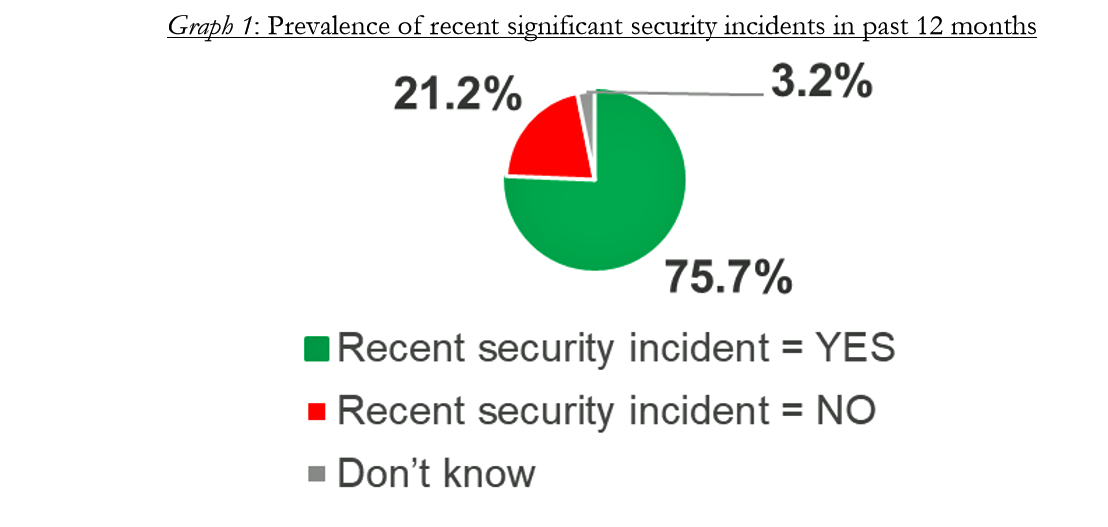
What a difference a couple of weeks make…. On 1st March 2018, two over-arching issues remained with me leaving Las Vegas and #HIMSS18: the central, recognized role of cybersecurity threats in healthcare, and the growing use of consumer-facing technologies for self- and virtual care. Eighteen days later, we all learned about Cambridge Analytica’s misuse of 50 million Americans’ social network data posted on Facebook. We who work in healthcare must pose the questions: going forward, how trusting will patients, consumers and caregivers be sharing their personal health information (PHI)? Will people connect dots between their Facebook lives – and their
Sounds Like A John Denver Song: Virginia and Colorado Towns Rank High As Healthy Communities
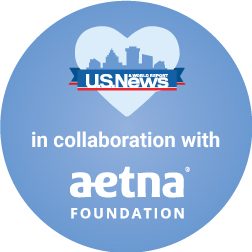
If it’s true that “your ZIP code is more important than your genetic code,” you’d look for a job in 22046, buy a house there, and plant your roots. You’d find yourself in Falls Church, Virginia, named number one in the Healthiest Communities rankings of 500 U.S. towns. You can see a list of all of the communities here. The project is a collaboration between the Aetna Foundation and U.S. News & World Report, with help from the University of Missouri Center for Applied Research and Engagement Systems (CARES) and a team from the National Committee on Vital and Health
Healthy Living in Digital Times at CES 2018

Connecting Life’s Dots, the organization Living in Digital Times partners with CES to deliver conference content during the show. At CES 2018, LIDT is connecting a lot of dots to help make health streamline into daily living. Robin Raskin, founder, kicked off LIDT’s press conference setting the context for how technology is changing lifestyles. Her Holy Grail is to help make tech fun for everybody, inclusive for everybody, and loved by everybody, she enthused. LIDT has been a presence at CES for many years, conceiving the contest the Last Gadget Standing, hosting tech-fashion shows with robots, and supporting a young innovators
A New Health Risk: Hacked Personal Medical Devices
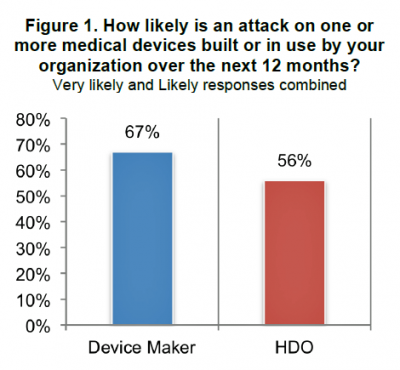
We have entered an era of insecurity in healthcare in America. While major attention is being paid to healthcare insurance and service insecurity, food insecurity and financial insecurity, there’s another one to add to this list: medical device security. As more medical devices have moved into the digital internet-connected mode, the risk for malware, ransomware, and overall hack-ability grows. This increasing and challenging risk is covered in the report, Medical Device Security: An Industry Under Attack and Unprepared to Defend from Ponemon Institute. Ponemon Institute has been tracking information security across industries, including healthcare, for several years. In this survey, sponsored
A New Risk Factor For Mental Health: Climate Change
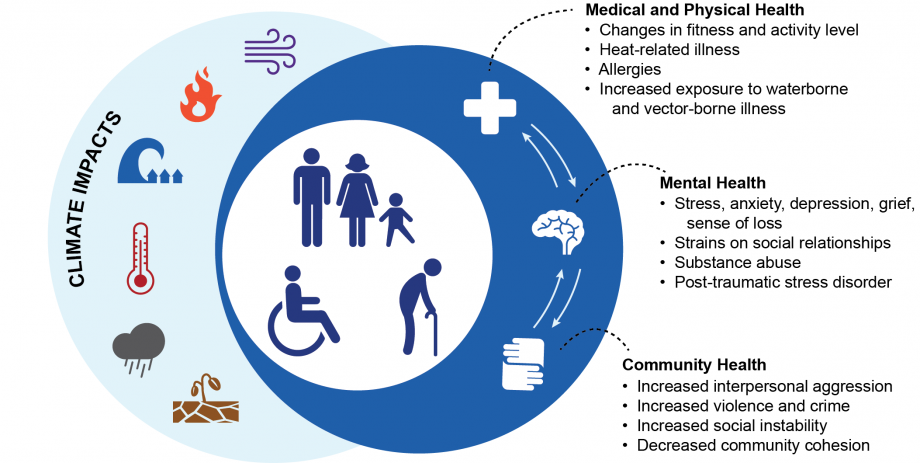
We make our health across many dimensions: via nutrition, safe physical/built environments, financial wellness, education, and the environment among them. In this last category, the environment, new research finds that climate change has a significant impact on health. The report, Mental Health and Our Changing Climate: Impacts, Implications, and Guidance, was sponsored by the American Psychological Association in conjunction with Climate for Health and ecoAmerica. “Climate change-induced severe weather and other natural disasters have the most immediate effects on mental health in the form of the trauma and shock due to personal injuries, loss of a loved one, damage to
Looking Beyond Tech for Health at CES 2017 – the Social Determinants
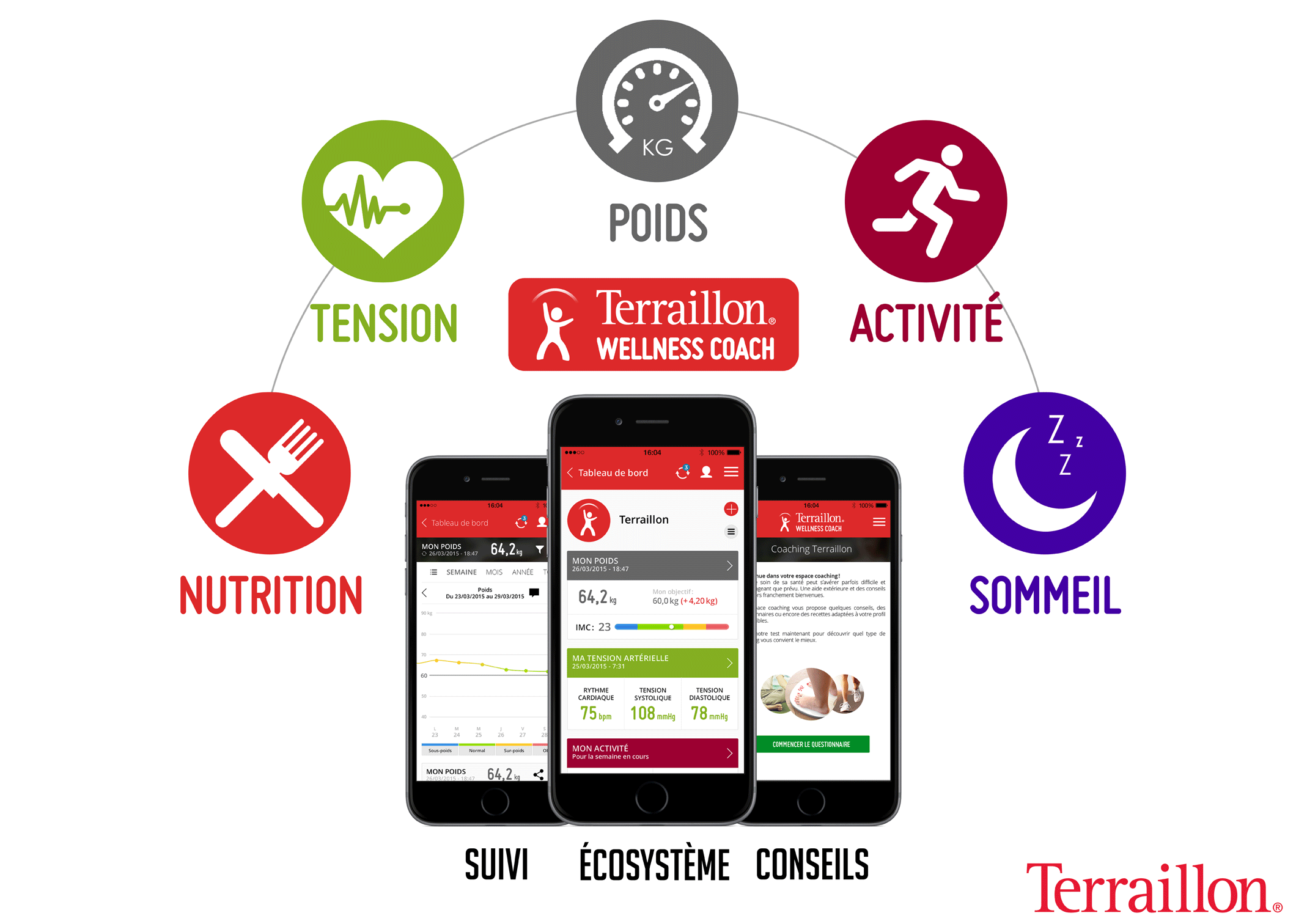
I’m at CES 2017 in Las Vegas all this week looking for signs of health in new technology announcements. While it’s no surprise there are hundreds of new and new-and-improved digital health innovations on the exhibition floor, you can look beyond those aisles to other companies who are new entrants in health. Arguably, these companies can bolster peoples’ health at least as much as activity tracking and calorie counting. Here are five examples I wrote about in my Huffington Post column yesterday, The Social Determinants of Health Live At CES 2017: Safety – Liberty Mutual Nutrition – Terraillon Healthy Sex
The Drug Epidemic-Testing and Data Arm the Battle

More than 40 Americans die every day from prescribed opiate overdoses, Dr. Tom Frieden of the CDC has recognized. The harms of pain-killing drugs have been substantial: Dr. Frieden observed, “the prevalence of opioid dependence may be as high as 26% among patients in primary care receiving opioids for chronic non-cancer-related pain.” There were more deaths due to drug overdoses in 2014 than in any previous year, 61% of which involved opioid pain relieving medications such as oxycodone and hydrocodine, and heroin which has grown in use over the past few years. The CDC has recommended that healthcare providers do
Privacy and the Internet of Your Healthy Things – the FTC says less (data) is more
The FTC has weighed in on privacy and security and the Internet of Things (IoT) in a report published on 27th January 2015. When it comes to IoT and devices that connect to the internet, the FTC will focus on Enforcing privacy laws Educating consumers and business on privacy and security for connected devices Participate in multi-stakeholder groups such as the NTIA’s team considering guidelines for facial recognition, and Advocate with other agencies, at the state level, and with courts. The report summarizes input received in a FTC workshop conducted in November 2013 with IoT industry experts, and offers recommendations
Women are natural disruptors for health
“Disruption” is a well-used word these days in business and, in the past few years, in the health care business. That’s because there’s a general consensus that the U.S. health care system is broken. “System” is a word that I shouldn’t use as my friend J.D. Kleinke smartly argued that it’s that lack of system-ness that makes using the phrase “health care system” an Oxymoron. The fragmented health care environment creates innumerable pain points when accessing, receiving, and paying for services. And it’s women who feel so much of that pain. In that context, I’m gratified and humbled to be one
Stress Is US
“Reality is the leading cause of stress among those in touch with it,” Lily Tomlin once quipped. Perhaps in 2014, America is the land of stress because we’re all so in touch with reality. THINK: reality TV, social networks as the new confessional, news channeling 24×7, and a world of too much TMI. So no surprise, then, that one-half of the people in the U.S. have had a major stressful event or experience in the last year. And health tops the list of stressful events in This American Life in the forms of illness and disease (among 27% of people)
In pursuit of healthiness – Lancet talks US public health
It’s Independence Day week in America, and our British friends at The Lancet, the UK’s grand peer reviewed medical journal, dedicate this week’s issue to the Health of Americans – exploring life, death (mortality), health costs, chronic disease, and the Pursuit of Healthiness. This project is a joint venture between The Lancet and the U.S. Centers for Disease Control (CDC) which took 18 months to foster, called The Health of Americans Series. Americans mostly die from chronic diseases, aka non-communicable diseases, which are largely amenable to lifestyle changes like eating right, quitting smoking, drinking alcohol in moderation, and moving around more. 1 in
23andme & Me
23andme received word from the Food & Drug Administration (FDA) on November 22, 2013, that they must cease and desist selling the company’s Saliva Collection Kit and Personal Genome Service (PGS). FDA explained in their Warning Letter, “Most of the intended uses for PGS listed on your website, a list that has grown over time, are medical device uses under section 201(h) of the FD&C Act. Most of these uses have not been classified and thus require premarket approval or de novo classification, as FDA has explained to you on numerous occasions. “Some of the uses for which PGS is intended are
Eric Topol creatively destroys medicine at #HIMSS13
Wearing his Walking Gallery jacket painted by (im)patient advocate, Regina Holliday, Dr. Eric Topol evangelized the benefits of digital medicine and consumer empowerment in health care, largely summarizing his epic (pun intended – wait for Hot Point, below) book, The Creative Destruction of Medicine. A founder of the West Wireless Health Institute (now known as West Health), Dr. Topol is a physician and researcher at Scripps and was recently named as editor at Medscape. A new piece of Topol Trivia for me is that GQ magazine called him a rock star of science. Dr. Topol is one of the more
Americans are first in un-health: the US health disadvantage
In the U.S., we’ll be the #1 oil producer by 2020. We’re the largest national economy in the world (to be surpassed by China before 2030). And, we’re #1 in terms of the lowest taxes paid as a percentage of national GDP. That’s all heartening news for the time being. But we’re also #1 in what I’ll call “un-health:” in auto accident mortality for adolescents, obesity rates, infant mortality, prevalence of sexually transmitted diseases, and among other public health metrics. A report from the National Research Council and Institute of Medicine (NRC/IOM) calls out what JAMA terms The US Health Disadvantage:
New Year’s Resolutions for health, and the 2013 Consumer Electronics Show
When it comes to taking on personal responsibility, the #1 New Year’s Resolution is to engage in fitness and exercise, cited by 43% of U.S. adults, followed by healthy eating, noted by 37% of people. Other resolutions involving personal responsibility are Family (26%) Spirituality and faith (22%) Managing personal finances (22%. This survey was undertaken as part of Liberty Mutual’s The Responsibility Project (RP), which is taglined: “Explore what it means to do the right thing.” Launched in 2008, Liberty Mutual’s RP has been diving into the many aspects of daily living for which we, each of us, could take responsibility…including
Public health is valued by Americans, but health citizens balance personal responsibility with a Nanny State
While most Americans largely believe in motorcycle helmet laws, seatbelt-wearing mandates, and regulations to reduce sale in packaged foods, most are also concerned about the nation turning into the United States of Nanny. The Harris Interactive/Health Day poll of March 20, 2012, finds a health citizenry “pro” most public and safety regulations, from banning texting while driving to requiring the HPV vaccination (e.g., Gardasil). Specifically, as the chart shows, – 91% of U.S. adults are for banning texting while driving – 86% are for requiring vaccination of young children against mumps, measles, and other diseases – 86% also like to





 Thank you FeedSpot for
Thank you FeedSpot for